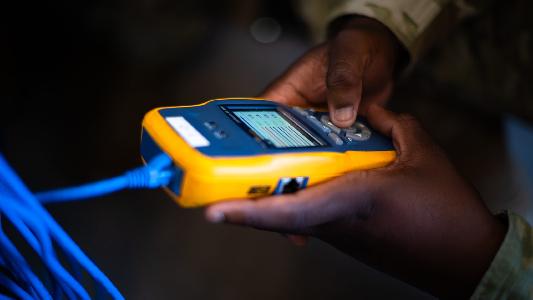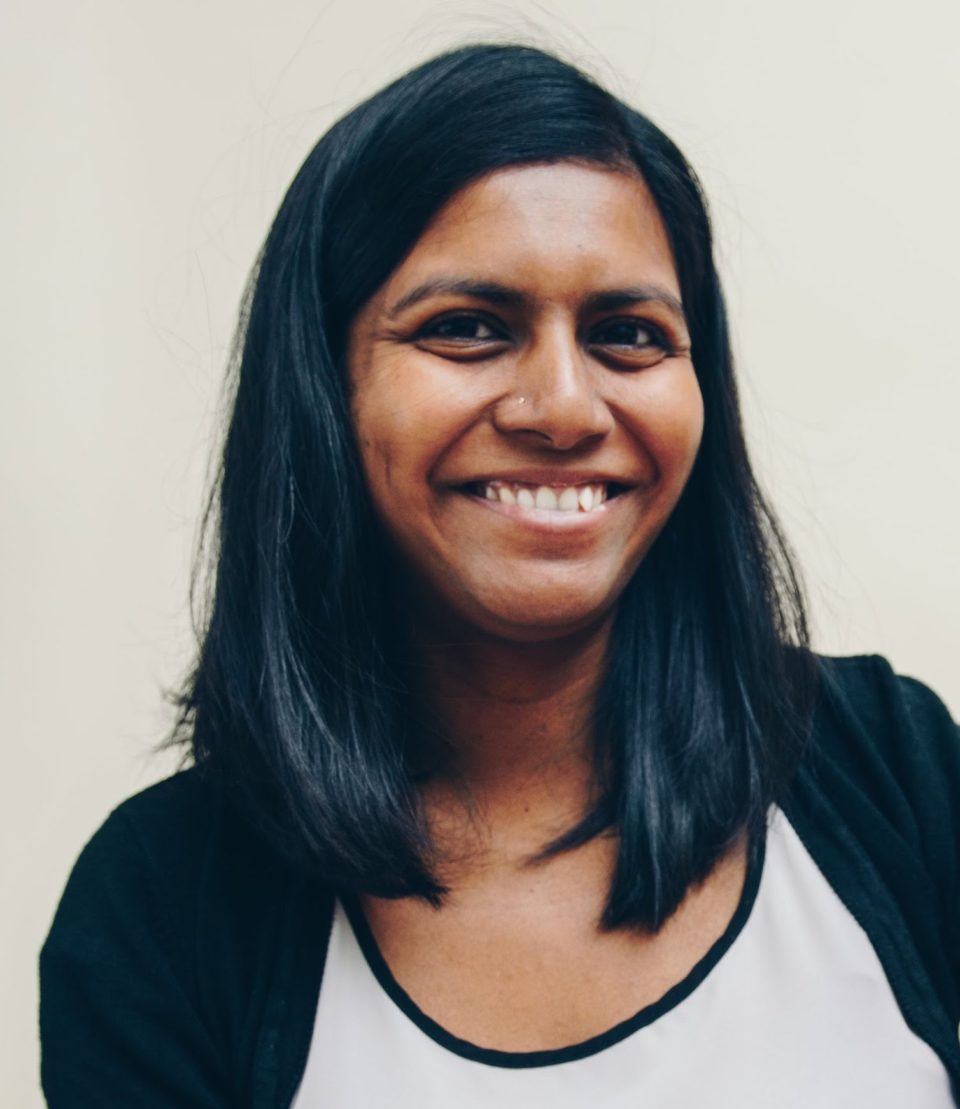Behind every tech company, there are engineers bringing great ideas to fruition. They’re building the tech and making sure it works, bringing a vision to life from scratch. These technologists often work behind the scenes, so we’re bringing them to the forefront for some much deserved recognition.
To put a creative spin on our RealLIST series, where we also annually highlight the most promising tech startups, Technical.ly set out to spotlight some of the most influential technologists within our local communities.
Today, we share the inaugural RealLIST Engineers DC.
They’re creating, maintaining and securing the software and infrastructure that’s being built in the area each day. And they’re powering the local tech industry as a whole: Whether it’s mentoring younger engineers or leading meetup groups, virtually all of our inaugural list count community right alongside code as a priority.
To curate this list, we started the process with a public call for nominations. Then, we consulted technologists and looked back through our own coverage. We considered how the person in mind was influential within their organization or community, how they overcame a specific technical challenge or how this person contributed to educating others on technical issues.
In December, join us as we celebrate these honorees with an awards ceremony alongside the winners of the Technical.ly Awards. Check back for more event details soon.
Without further ado, here’s a look at the first-ever RealLIST Engineers DC, in alphabetical order:

Emmanuel Apau, lead site reliability engineer, Cvent
Within the Tysons-based curator of an event management platform, Apau is responsible for monitoring and improving the company’s complex SaaS platforms. He is an AWS-certified site reliability specialist, with five certifications earned within this past year. For the next generation, Apau instructs a bootcamp at George Washington University that teaches students the fundamentals of web development including HTML/CSS/JS/Node and application deployment. Apau also cofounded a minority meetup community called the Black Code Collective in the D.C. area.
Laurie Barth, software engineer, Ten Mile Square Technologies
A mathematician-turned-software engineer, Barth currently works as a developer and consultant with this Arlington-based IT services and consultancy firm. Outside of her day job, Barth travels the world to speak at conferences about JavaScript, and frequently blogs on new features in JavaScript and CSS. She is also involved in some local community organizations, including the local chapters of Women Who Code and Girls Who Code.
Sheena Bryant, software engineer, Nava PBC
Bryant is a member of the team at Nava building APIs for Medicare. She recently architected the company’s approach to implementing scoring precision in the APIs. Bryant’s team says that “through this system and her thoughtful and detailed technical specification and subsequent implementation,” her work enables CMS to accurately grade and pay doctors. She cofounded and currently serves as the chair of the Earth Tones Employee Resource Group at Nava, and started the District Black Tech Forum, a community and meetup group bringing together Black entrepreneurs, engineers and designers alike.
Rami Chowdhury, principal engineer, Python, Upside Business Travel
One of Chowdhury’s team members describes him as a “true technical leader at Upside.” He was recently appointed to principal engineer at the D.C.-based curator of a platform for business travel, and is responsible for the shepherding and delivery of high quality production code in support of the travel industry. Chowdhury also offers mentoring support to Upside’s labs teams engineers and data scientists as they develop robust code.
Dylan Gaffney, lead engineer, VEDA Data Solutions
Gaffney was the first engineer at VEDA, a company that manages a platform that uses machine learning to make sure health provider directories have the correct information. He took the lead on all things related to the production of VEDA’s application. As the company has grown over the years, Gaffney has helped recruit engineering talent and built a process and infrastructure to help the company scale and grow.
Andrew Garcia, founder and CTO, Goodshuffle
Since its inception, Garcia was a part of building D.C.-based Goodshuffle’s core products with cofounder Erik Dreyer. The company operates an online marketplace for party rental supplies and builds tech for the event industry, and until recently, a team member shared that Garcia was the sole party responsible for moving products through rapid prototyping, early development, beta and managing them in operations. He has also spoken on several General Assembly panels to help up- and-coming developers hone their interview and job search skills.
Frank Goodman, CTO and COO, Happied
Goodman leads the tech team behind the startup managing an app that features a database of more than 450 D.C. happy hours. He led the development of Happied’s app with a team from his other company, Bleeding Bulb, which builds apps and supports small business growth. Goodman and his team now manage the app as happy hours are continuously changing and being added.
David Holmes, director of engineering, U.S. Digital Service
One of Holmes’ team members describe him as “an authentic leader who genuinely cares about helping the people we serve and cultivating a healthy, supportive work environment where other engineers feel safe asking for help, growing and learning together.” He is known at his company for sourcing engineering talent from diverse and underrepresented communities by recruiting at events like AfroTech, LatinX Techies, Girlgeek X, and the Grace Hopper Celebration of Women in Computing. He also frequently participates in podcasts and interviews to discuss the importance of bringing modern tech practices to government work.
Veni Kunche, senior software engineer, U.S. Geological Survey
During her tenure at the U.S. Geological Survey, Kunche has used programs like Django, Python and AngularJS to help build an information management system, implement new data management techniques, migrate databases and more. She is also a startup founder, leading the newly launched Diversify Tech, a website that seeks to connect underrepresented people with resources that facilitate employment in the tech industry such as tech conferences, scholarships, job postings and events.
Daniel Krinke, software engineer, Aquicore
With a year under his belt at Aquicore, one of Krinke’s team members describes him as “a great software engineer with a never-give-up attitude that serves him well.” During his time on the job, he has championed the adoption and practice of a specific deployment technique, and has even constructed template projects and development guides to ease the learning curve and drive adoption. Krinke also finds time to assist his peers, going out of his way to make sure all of his teammates are on the same page.
Taylor Poindexter, backend engineer, Crowdskout
Poindexter, who has coined the creative Twitter handle @engineering_bae, spent some time an IT consultant before working as Crowdskout as a backend engineer. She also cofounded the Black Code Collective, a meetup group and community bringing Black software developers together to grow their skills and share knowledge. Poindexter has also been a part of organizing a number of inclusive, beginner-friendly hackathons and civic tech days in the area.
Shannon Turner, founder, Hear Me Code
Turner is a local full-stack developer who founded Hear Me Code, an organization that offers free, beginner-friendly coding classes for women. Turner said her organization has reached over 3,000 women since its launch in 2013. Turner said on her organization’s site that Hear Me Code is her attempt to address the gender disparity in tech, and in so doing, empower others to create the change they wish to see.
Before you go...
Please consider supporting Technical.ly to keep our independent journalism strong. Unlike most business-focused media outlets, we don’t have a paywall. Instead, we count on your personal and organizational support.
3 ways to support our work:- Contribute to the Journalism Fund. Charitable giving ensures our information remains free and accessible for residents to discover workforce programs and entrepreneurship pathways. This includes philanthropic grants and individual tax-deductible donations from readers like you.
- Use our Preferred Partners. Our directory of vetted providers offers high-quality recommendations for services our readers need, and each referral supports our journalism.
- Use our services. If you need entrepreneurs and tech leaders to buy your services, are seeking technologists to hire or want more professionals to know about your ecosystem, Technical.ly has the biggest and most engaged audience in the mid-Atlantic. We help companies tell their stories and answer big questions to meet and serve our community.
Join our growing Slack community
Join 5,000 tech professionals and entrepreneurs in our community Slack today!

The man charged in the UnitedHealthcare CEO shooting had a ton of tech connections

Northern Virginia defense contractor acquires aerospace startup in $4B deal

From rejection to innovation: How I built a tool to beat AI hiring algorithms at their own game



